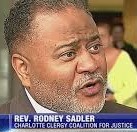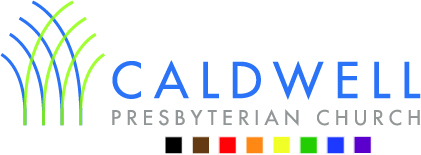Dear Caldwell,
On Sunday, we began Black History Month with Gail’s reminder that we should recall the triumphs of Black American history, not just the trauma. Then, she said, when we are informed fully and objectively about Black history in the U.S., Gail invited us to ask of ourselves: “What story are we telling and where are we going?”
The Caldwell story parallels and reflects more than a century of history in Charlotte, in America and in the Presbyterian tradition. Those intertwined stories include both the highs and lows, moments of rejoicing and moments for repentence. Caldwell’s past informs our present and the story we feel called to tell into the future as those seeking to join God in a new tale of love and justice, of mercy and of meaning.
Our story includes the truth of slavery and how its legacies shape our life together today. A necessary part of that conversaion is the question of reparations. We get that word from its root – “to repair.” What obligations does society owe to repair the tragic and lasting damage done from 250 years of slavery, 90 years of Jim Crow, 60 years of separate but “equal” and decades more of racist housing policies and other laws and norms that advantaged white over Black?
This Saturday, Presbyterians from across our region take up that question.
Commissioners to our quarterly Presbytery meeting are asked to vote on an “overture,” or statement, that calls Presbyterians to confess our complicity in the evils of slavery, make apology and pursue specific means of repair that close the gaps between the races, in economics, health, educational, environmental criminal justice and other sectors of society.
This statement originated in the Presbytery of the St. Louis area and is endorsed for action in Charlotte by our Presbytery’s Anti-Racism Ministry Team, which I co-chair with Rev. Shavon Starling-Louis, pastor of Memorial Presbyterian. It is making its way from Presbytery to Presbytery with its authors’ goal for it to be acted on at our denomination’s national meeting this summer.
As always, we Presbyterians are nothing if not thoughtful and well-researched about all of this. If you would like to read more about the overture, what it means and its rationale for us as people of faith, click here to review the documents being shared with commissioners. I encourage you to spend some time on that link and read the faithful thought and reflection provided there. Caldwell sends four commissioners (two serving elders, Gail and me) to the meeting. A link to view the meeting online (the topic will come up some time in the morning) will be available later in the week and provided in CTW Friday.
Our Friend Rodney Sadler Preaches Sunday

As Black History Month rolls on, we blessed that a teacher to so many of us, Rev. Dr. Rodney Sadler, will preach this Sunday on how our faith informs the question of reparations. Rodney has meant so much to so many here through the years, to say nothing of how he shaped Gail and me in seminary. A good friend of Caldwell’s and a rare, truly prophetic voice in our city, he will begin a two-part series on faith and reparations.
That means I have the uneasy task of following him in the pulpit on Feb. 20, when I will lift up several scripture passages in which people of God confront similar questions of responsibility and repair. Let me know if you have any thoughts.
Have You Considered Sunday Study?
If you haven’t taken the chance to jump into our “New Thing” new Sunday school class, this might be a good opportnity. It looks at the scriptures that are being preached on Sundays in an open forum of reading the text and group exploration and dialogue. Let me encourage you to give it a try, online or in person – 9:45 a.m. on Sundays in the Upper Room, above Shelby.
This month the ACE Sunday School class is holding another timely discussion of the book, My Grandmother’s Hands, available to all who pledged for 2022. The class is walking through the book and will take up chapter 2 Sunday. It’s a meaningful conversation that follows the author’s proposal that all Americans have some level of trauma associated with race – and that we can be healed.
If you haven’t picked up your copy of the book, grab one Sunday in the sanctuary or come by the church some time (call first).
In a hopeful note, plans look good for our kitchen equipment and dining room tables and chairs to be trucked back to the church from storage on Friday morning. It’s a welcomed step as we get ever closer to “getting the keys” to the new community hall. Robbi Walls and Bob Atkinson continue to lead that project overall. If you would like to be involved in helping furnish, decorate or otherwise set up this blessed new space, contact them (or me).
In closing, the Old Testament book of 2 Kings recounts how God called the people to tend to the long-neglected Temple King Solomon had built a century earlier. After the priests had misused the funds for decades, it literally needed open cracks in the walls to be filled and yawning gaps in its towering columns repaired.
As people of God, with our own confessions of neglect and need for repair, we hear God’s call to be, in our own time, “repairers of the breach.”
In Christ,
John
